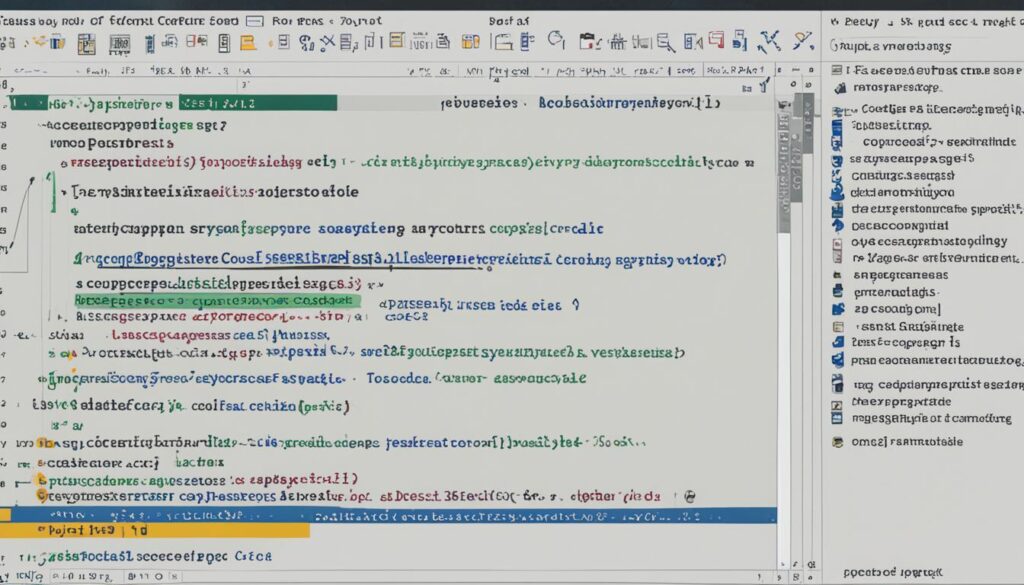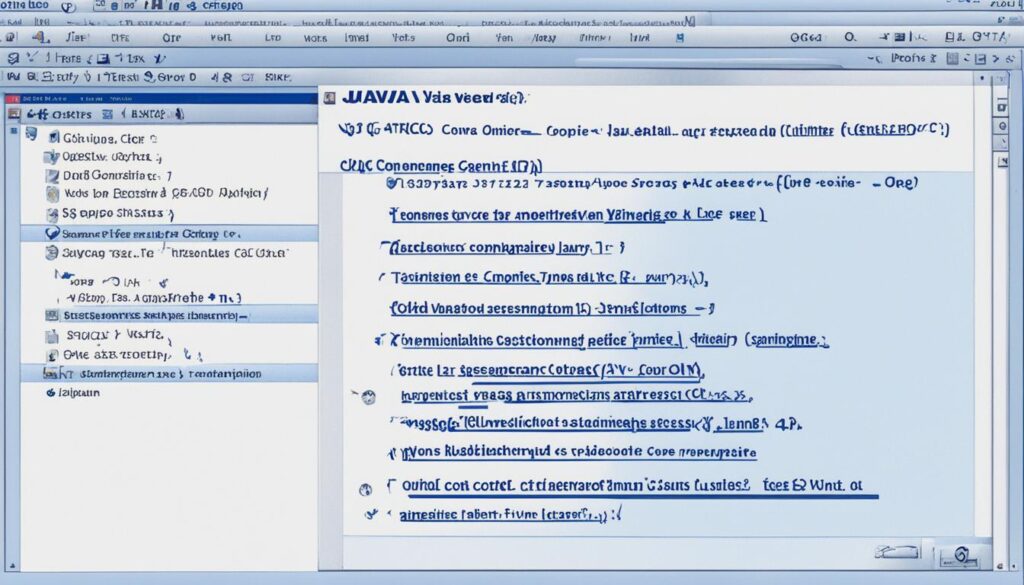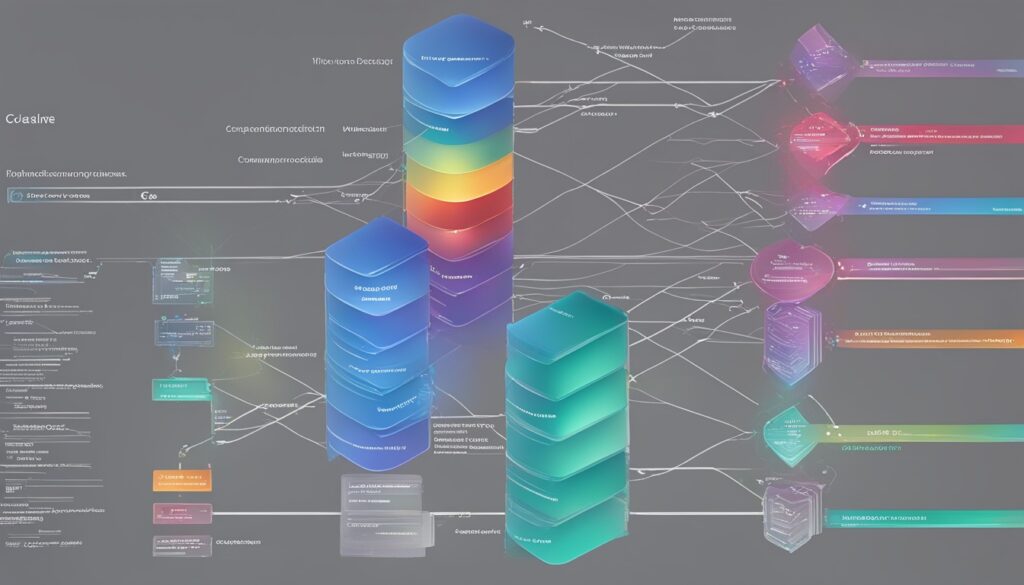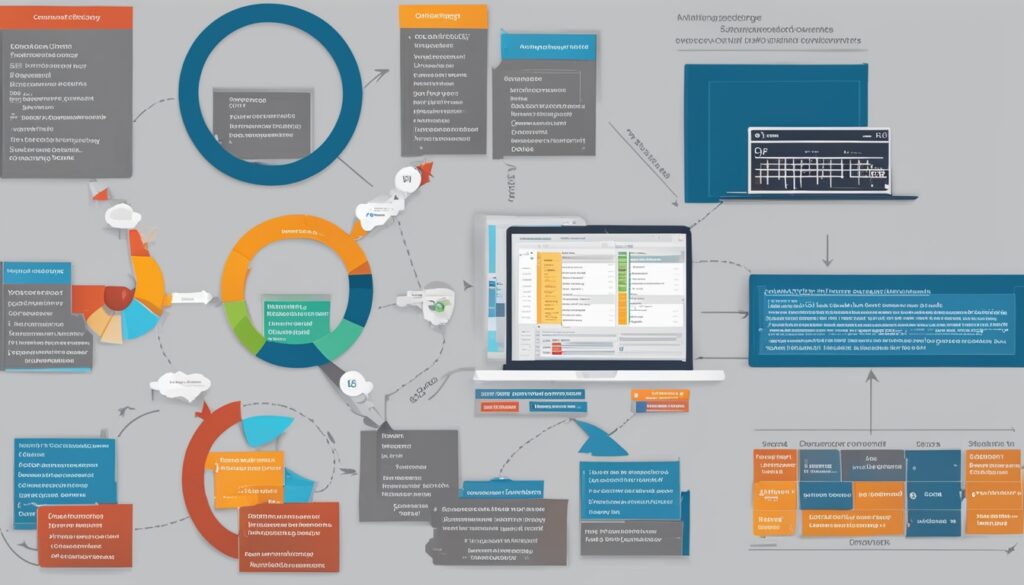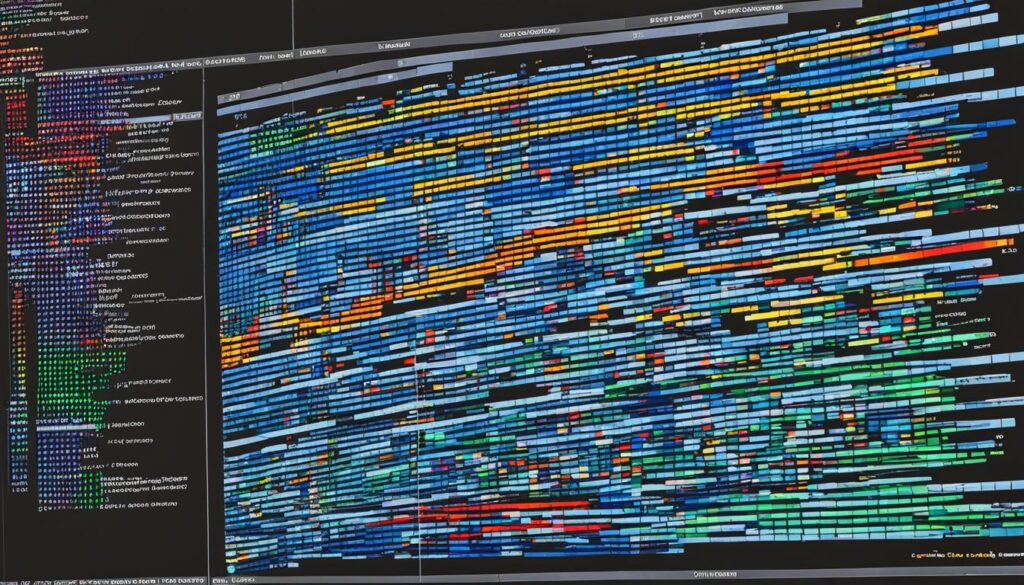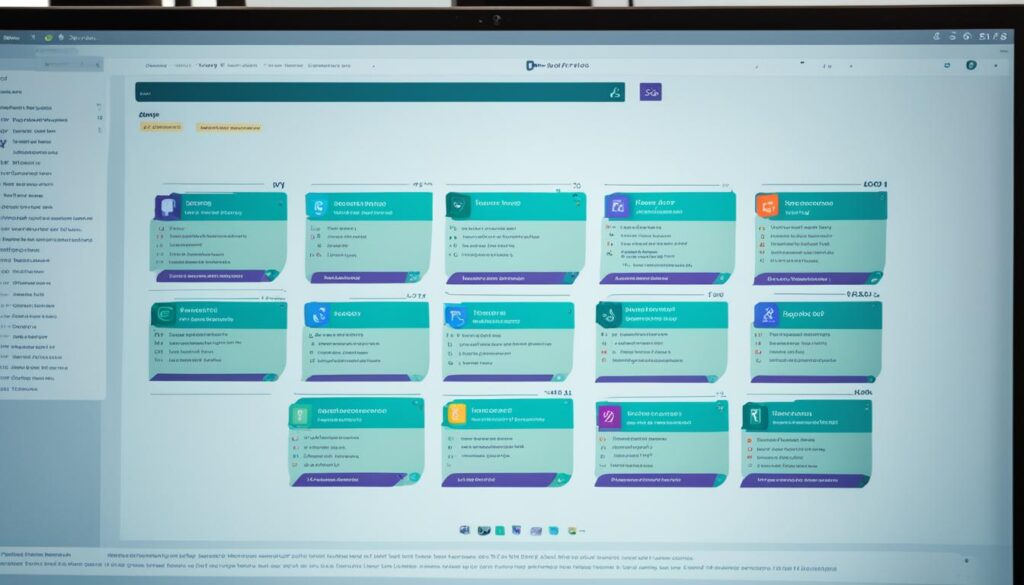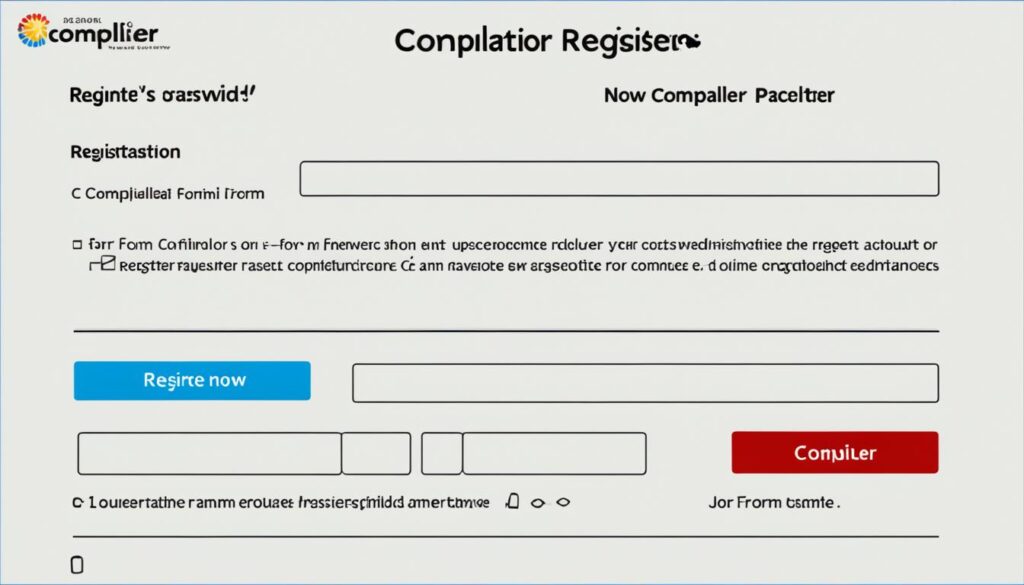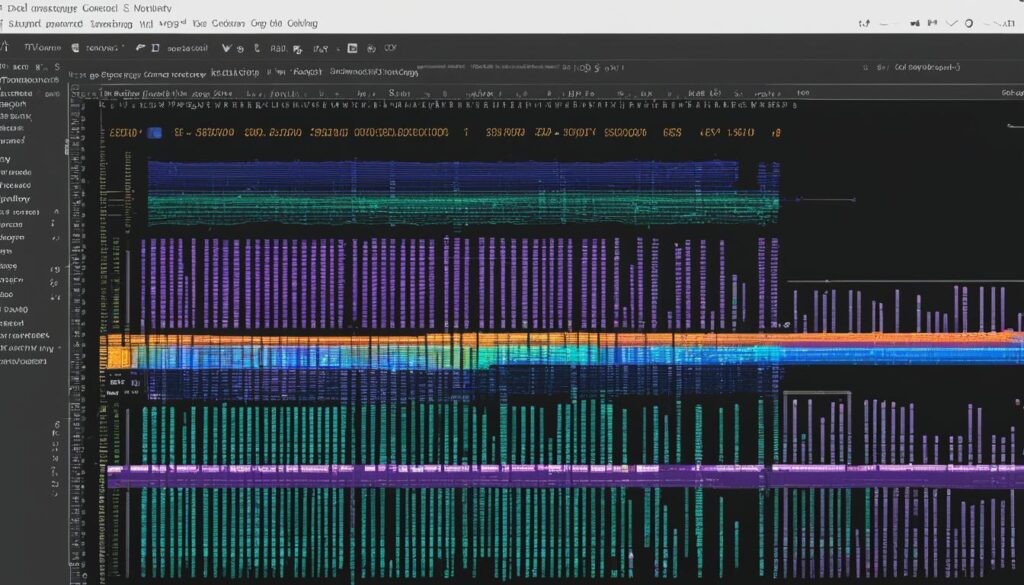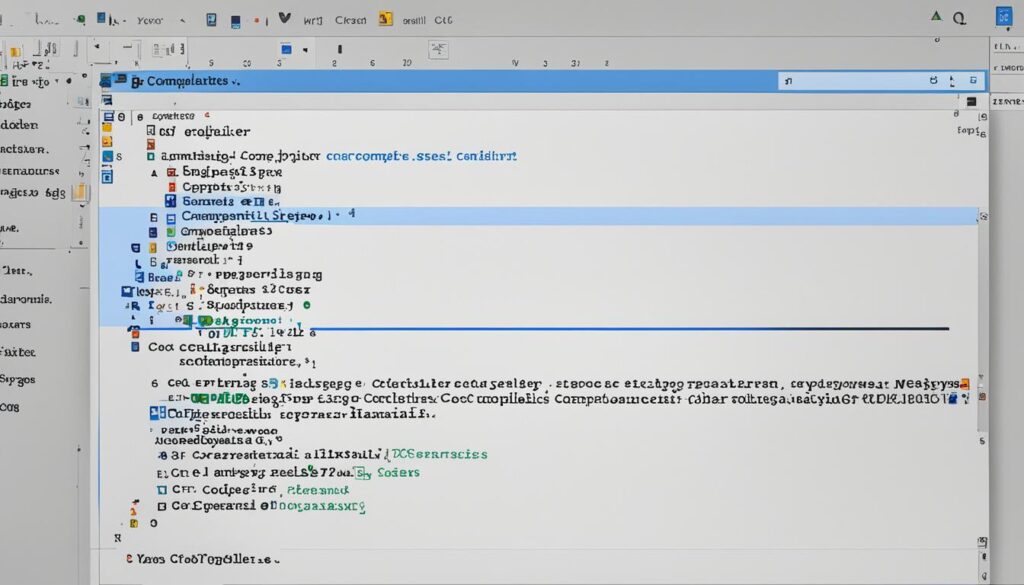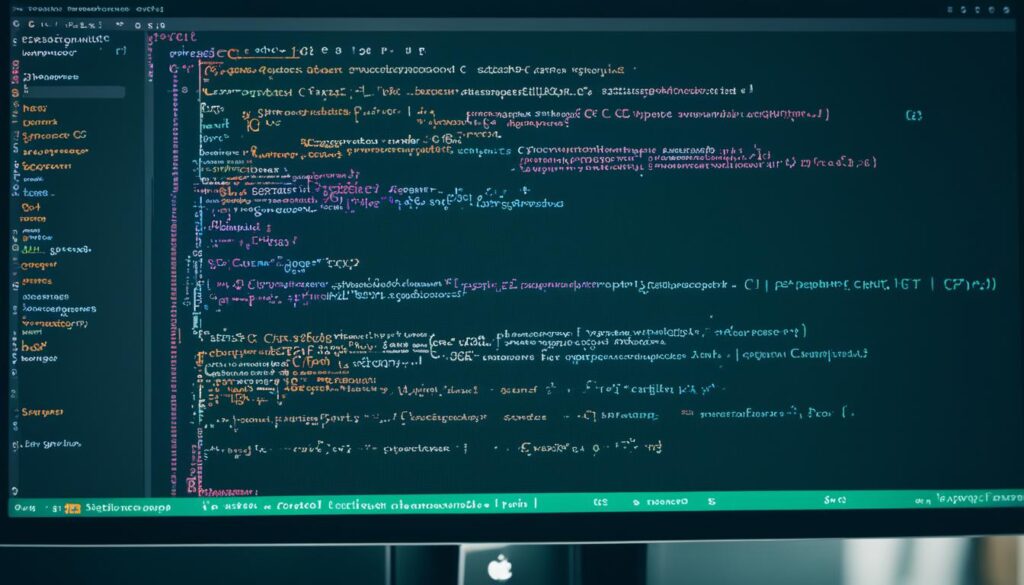Ever thought about making coding easier, no matter where you are? Tools like Online GDB Python are changing how we code. They let us write and fix code right in our web browsers. This makes coding simpler and connects our local work to cloud solutions.
We’re going to look at what makes Online GDB special. It’s a web-based Python IDE that makes coding easy, offers great debugging tools, and helps us work together. Let’s see how this online Python cloud IDE is changing how we tackle programming challenges.
Introduction to Online GDB
Online GDB has changed the way we code by offering a web-based Python IDE. It made programming tools more accessible. Now, users can write and debug code right from their browsers without needing to install anything.
This platform shows how important cloud-based development environments are becoming. Using the online gdb python tool, we see how it helps both learners and developers. It makes coding more collaborative and efficient, which is great for students working together.
The python web IDE from Online GDB shows what modern programming solutions look like. It uses web tech for real-time collaboration and quick feedback. This is key for teams working on projects. We think using these online tools boosts our productivity and makes programming better for all skill levels.
What is Online GDB Python?
Online GDB Python is a platform for coding in Python right from a web browser. It’s an online compiler for Python that lets developers write, run, and debug code in real-time. No need for any software on your computer. With a cloud IDE, you can work on your projects from anywhere, making it super convenient.
This platform offers a full development environment with tools for real-time collaboration, detailed debugging, and support for many programming languages. It’s perfect for both new Python users and experienced developers. They use it for quick tests and fixes.
It makes coding easier and better for teams by offering simple code sharing. Online GDB Python is a top choice for those who want performance like traditional setups but with easy access and user-friendly design.
Benefits of Using Online GDB Python

Using the online gdb python platform changes how we code and debug. It brings many benefits for both individual developers and teams working from afar. Let’s see how these advantages can make coding better and improve teamwork.
Accessible Coding Environment
The online gdb python setup lets us code from anywhere with internet. This is great for students and teams working remotely. They can work on projects without the usual setup limits.
We can code from anywhere, making us more productive and engaged. This flexibility is key to success in today’s digital world.
Collaboration Features
The online gdb python platform is all about teamwork. We can work with others in real-time, editing and debugging code together. This makes our team work more efficient during python remote debugging.
It also makes learning more interactive. Sharing code and solutions with others makes coding a team effort. This leads to better results for everyone.
Getting Started with Online GDB
Starting with Online GDB Python is easy and friendly. First, we sign up on the site to create an account. This lets us save our projects and use features that fit our needs.
After setting up our account, the interface is easy to use. It’s designed for both new and experienced programmers. We can write our scripts in the python code editor online. This editor has tools for editing, running, and debugging our code.
The web-based python ide lets us quickly compile and run our code. For beginners, tutorials and community resources can make learning easier. The platform has examples and guides to help us get into Python programming. For more on programming structures like ABAP OOP, check out this link.
| Step | Description |
|---|---|
| 1 | Create an account on Online GDB. |
| 2 | Navigate the user-friendly interface. |
| 3 | Select the python code editor online to start coding. |
| 4 | Utilize resources and community support. |
With these easy steps, we can start our coding journey with Online GDB Python.
Key Features of Online GDB Python
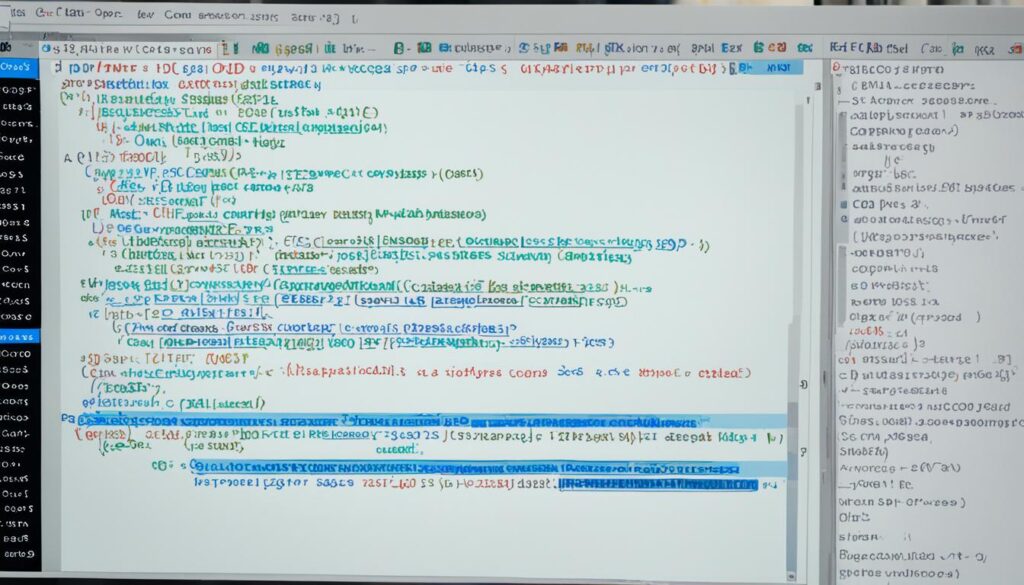
Online GDB Python brings together features that make coding easier and more efficient. It has tools for debugging and a user-friendly interface. These features make coding smooth for everyone.
Integrated Debugging Tools
Online GDB Python’s debugging tools are key to improving our coding. They help us find and fix errors right away, making us more productive. The main tools include:
- Breakpoint Setting: This lets us stop the code and check variables at certain points.
- Step Execution: We can run our code one line at a time to find problems.
- Variable Watch: This tool lets us see the values of variables while debugging.
User-Friendly Interface
The interface of Online GDB Python is simple and easy to use, great for all skill levels. It has features that make using it better:
- Clean Layout: The layout is organized, making it easy to find tools.
- Code Suggestions: Suggestions help us write code that works well and has fewer errors.
- Instant Feedback: We get quick results when we compile, helping us understand how our code works.
With these features and strong debugging tools, Online GDB Python is a great tool for programming. It helps us work better and learn more.
How to Write and Execute Python Code Online
Writing and running Python code online is easy, thanks to platforms like the online gdb python. You can test your code right in the browser with a python online compiler. Here are the key steps to run your Python scripts smoothly.
Simple Code Execution Steps
To start, follow these easy steps for running Python code online:
- Open the online gdb python in your web browser.
- Select Python as the programming language from the dropdown menu.
- Write your Python code in the provided code editor.
- Click the ‘Run’ button to execute the code.
- View the output in the designated output window below the editor.
Tips for Efficient Coding
Being efficient while coding in an online Python compiler is key. Here are some tips from experienced users:
- Utilize keyboard shortcuts for common functions to speed up your workflow.
- Create and save templates for frequently used code snippets. This will save time when starting new projects.
- Regularly test your code in small increments. This practice helps in identifying errors early on.
- Make use of debugging features available in the online gdb python to troubleshoot effectively.
| Step | Action |
|---|---|
| 1 | Open online gdb python |
| 2 | Select Python |
| 3 | Write your code |
| 4 | Click ‘Run’ |
| 5 | View output |
Exploring the Python Debugging Tools Available
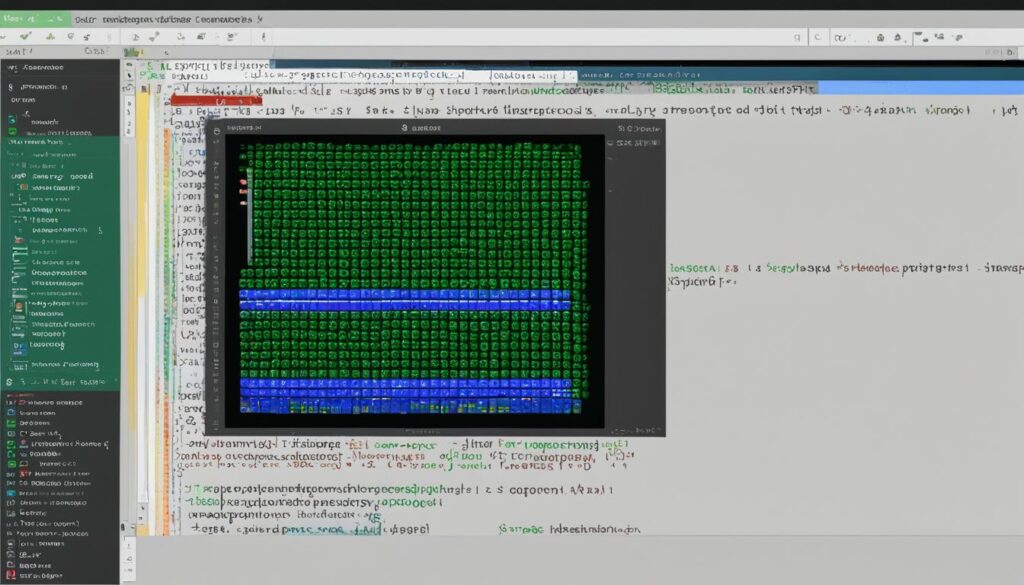
The online gdb python platform gives us advanced python debugging tools to quickly find and fix errors. Features like breakpoints let us stop the code at key points. This lets us check variables and how the program moves step by step.
With watch variables, we can keep an eye on certain variables while the code runs. This makes it easier to see how they change and what they do. Stack tracing shows us the order of function calls that led to a problem, helping us debug better.
These tools change how we write Python code, making fixing problems easier. The python online debugger tools work well together, helping us write strong and reliable code. We also learn from tutorials on debugging Python, improving how we use these tools.
| Debugging Feature | Description | Benefits |
|---|---|---|
| Breakpoints | Pause execution at specific lines of code. | Allows in-depth inspection of program state. |
| Watch Variables | Track changes to specified variables during execution. | Helps identify unexpected behavior and state changes. |
| Stack Tracing | Displays the current stack of function calls. | Facilitates understanding of the execution flow and errors. |
As we use these tools in our projects, we see they improve our coding skills and make development smoother. By learning about using these tools, we make our work better.
Comparison with Other Python Online Debuggers
Choosing the right tool in the web-based python ide world is key for developers. We look at online gdb python and other top python online debugger choices. Each has special features for different users and needs.
When comparing online gdb python with others, we consider several things. Here’s a quick look at the main points:
| Feature | Online GDB Python | Competitor A | Competitor B |
|---|---|---|---|
| Integrated Debugging Tools | Yes | Limited | Yes |
| User-Friendly Interface | High Usability | Moderate Usability | High Usability |
| Collaboration Features | Real-time collaboration | No | Limited sharing |
| Code Execution Speed | Fast | Average | Fast |
| Free Access | Yes | Yes | Freemium Model |
This comparison shows online gdb python is strong in some areas. It’s great for debugging and working with others. When picking a python online debugger, it’s clear the right choice can make a big difference in our work.
Setting Up Your Python Environment with Online GDB
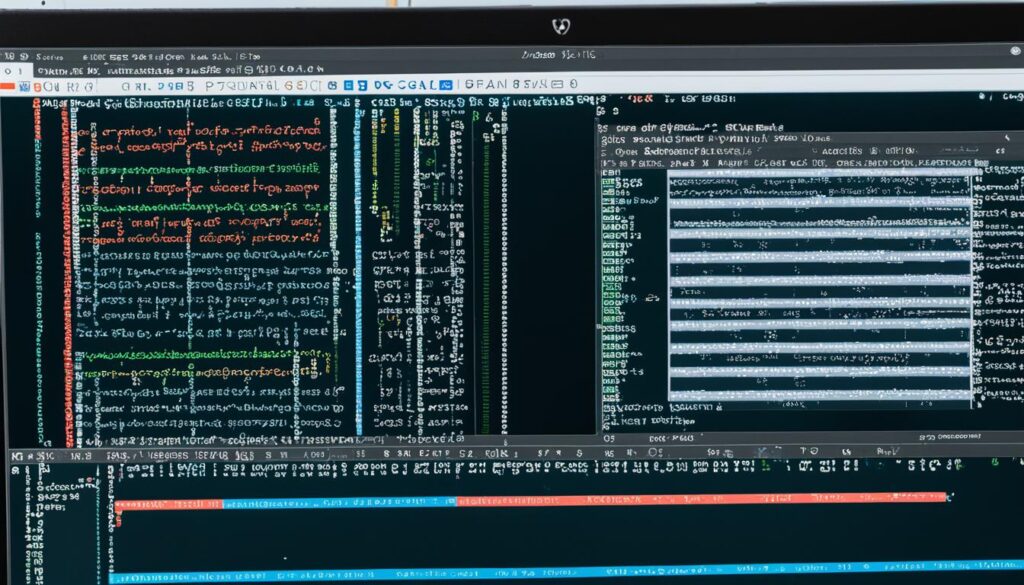
Starting with Online GDB means setting up our Python environment right. This setup lets us use the online gdb python platform fully. We’ll see how to set up the online Python compiler and add useful Python libraries to our coding space.
Configuring the Online Python Compiler
Setting up the online Python compiler in Online GDB is easy.
- Access the platform and create a new project.
- Select Python as the programming language from the dropdown menu.
- Familiarize yourself with the interface to find essential tools like the code editor and execution options.
After making our choices, we can start writing and running our code in the Python coding environment online. This lets us see results right away.
Using Python Library Integration
Adding libraries can boost our coding skills. Online GDB supports many Python libraries, making it a great python cloud ide. Here’s how to add libraries:
- Within the code editor, use the import statement to add libraries as needed.
- If libraries aren’t pre-installed, look up community resources for help on adding them.
- Test the libraries to make sure everything works right.
Setting up our Python environment well helps us code more efficiently. It also gets us ready for tougher programming tasks. This makes the most of the strong tools in Online GDB.
Common Challenges and Solutions
When we dive into online coding, we face many challenges with online gdb python. Knowing these issues can make our coding journey smoother. This part talks about common problems and how to fix them, especially with debugging and improving code speed. Using the right strategies and tools can make coding in the python web ide better.
Debugging Errors in Your Code
Debugging is key in programming but can be tough due to many errors. With python debugging tools, we have ways to make it easier:
- Use breakpoints to stop and check variables.
- Log the app’s flow to find where it fails.
- Use the online gdb python platform’s debugging tools.
These methods help us fix most problems and get better at coding.
Optimizing Code Performance
Writing efficient Python programs needs good performance optimization. Here are tips for the python web ide:
- Profile your code to find what slows it down.
- Refactor to remove unnecessary parts and make it clearer.
- Choose the right data structures for better performance.
- Test performance often, as online environments differ from local ones.
These steps help make our code run well in the online gdb python environment.
| Challenge | Solution | Resources |
|---|---|---|
| Debugging Errors | Use breakpoints and logging | Python debugging tools |
| Code Performance Issues | Profile and refactor code | Integrated performance monitoring |
Online GDB Python: A Resource for Education
Online coding environments have changed how we teach programming. Online GDB Python is a key tool that boosts our python education resources. It lets students learn coding by writing, debugging, and running code in their web browsers.
Teachers say students get more involved when using online GDB Python. Through case studies, we see how it makes learning practical coding exercises easier. Students can try out code right away and get feedback that helps them understand programming better.
- Accessibility: Students can use the python coding environment online from any device with internet, making learning easy and open to everyone.
- Collaborative Learning: The platform supports group projects, letting students work together and improve their coding skills.
- Resource Rich: It comes with many python education resources for both teachers and students. This helps make lesson plans better and encourages students to explore coding on their own.
Educators praise online GDB Python for being more than just a teaching tool. It builds a community of learners. This platform sparks a love for coding in students, getting them ready for future challenges in programming and technology.
Community and Support for Online GDB Users
The online GDB python platform gets stronger with the help of the python community. Users work together to fix problems, share tips, and improve their coding. This makes a place where both new and skilled programmers can get help and learn.
Getting Help from the Community
Using community resources can make learning the online GDB python platform easier. Forums and user groups are great places to get help. Here, users can:
- Talk about common coding and debugging issues.
- Share their experiences with the python online debugger.
- Find documents that explain how the platform works.
We suggest joining these forums to get the latest info and solutions. Working together helps us understand the tool better and keeps learning going in the community.
| Community Resource | Description | Benefits |
|---|---|---|
| Forums | Online platforms for discussion and troubleshooting. | Immediate help and diverse perspectives on issues. |
| User Groups | Local or online groups that focus on coding practices. | Networking with peers and sharing knowledge. |
| Documentation | Official guides and resources for using online GDB. | Comprehensive information and instructions for effective usage. |
Integrating Online GDB with Other Development Tools
We look into how Online GDB Python can work with other development tools. This makes coding and debugging easier for users. By linking python online compiler with other apps, we speed up the coding process.
Starting with APIs from Online GDB lets us work smoothly with other software. These APIs help automate tasks, making coding faster. For example, we can link our projects to GitHub or Bitbucket for better version control and teamwork.
Also, using python development tools like Jupyter Notebooks with Online GDB makes coding better. This combo gives us access to more libraries and tools. It boosts our productivity.
| Integration Tool | Benefits |
|---|---|
| GitHub | Simplifies version control and collaboration |
| Jupyter Notebooks | Access to extensive libraries and interactive coding |
| Slack | Real-time collaboration and communication |
| Docker | Environment consistency across development and production |
By combining these important tools, we make our coding environment better. This makes using online GDB python not just productive but also fun. We use these tools together to improve our coding work.
Conclusion
We’ve talked about the many benefits of using Online GDB Python as a web-based Python IDE. It lets us code and debug easily in a browser, making it available to everyone everywhere. With its integrated debugging tools and easy-to-use interface, Online GDB Python makes coding better.
This online Python debugger is great for both work and school. It has features that help us learn and grow together. We see Online GDB as a key tool for coders who want to make their work easier and improve their debugging skills.
Using Online GDB Python puts us ahead in our coding projects. We invite all users, from newbies to pros, to check out its features and join the community. This way, Online GDB stays a top choice for efficient coding.
FAQ
What is Online GDB Python?
Online GDB Python is a web-based IDE. It lets users write, run, and debug Python code in their browser. You don’t need complex setups or installations to use it.
How can I debug Python code using Online GDB?
Use Online GDB’s debugging tools like breakpoints and step-through execution. These help you find and fix errors in your code.
Do I need to install anything to use Online GDB?
No, you don’t need to install anything. Just have internet and a web browser to start coding and debugging.
Can I collaborate with others using Online GDB?
Yes, Online GDB has features for collaboration. Multiple users can work on the same code together, perfect for team projects or learning.
Is Online GDB Python suitable for beginners?
Absolutely. It’s easy to use and has tools for beginners learning Python. You can switch between learning and coding easily without a complex setup.
What are the advantages of using Online GDB compared to local Python environments?
Online GDB is accessible from anywhere, easy to set up, and has collaboration tools. It also has an online Python compiler. This makes coding and debugging more efficient than traditional environments.
How does Online GDB support Python cloud IDE functionalities?
Online GDB is a cloud IDE. It hosts all coding, execution, and debugging online. Users can access their projects from any device with internet.
Are there any resources available for learning how to use Online GDB?
Yes, there are many resources. You can find community forums, user manuals, and tutorial videos. These help users learn about Online GDB’s features and capabilities.





